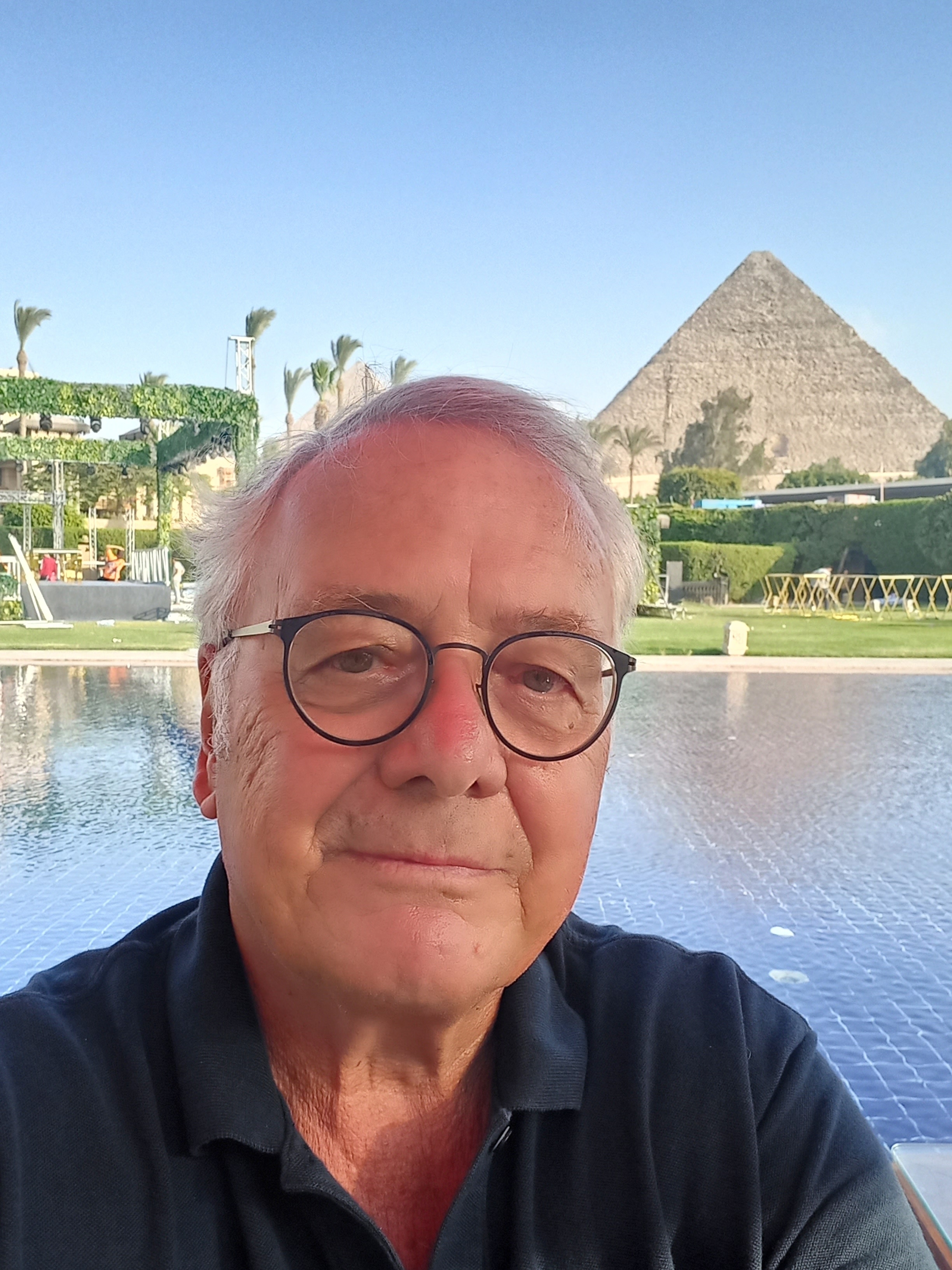
David Munro: Learning Arabic Inspires Legacy Gift
David Munro’s life has been a journey of language, finance and cross-cultural connection, one that began in the United States and led him to Cairo, where his bond with AUC took root. Now, through a bequest in his will, Munro is ensuring future students can follow a similar path. His endowed fellowship will support CASA@AUC scholars, honoring the program that deepened his own understanding of the Arab world.
From Wyoming to the Arab World
Born in Laramie, Wyoming, Munro grew up in a family where education and politics intersected. His father, a law professor and Democratic Party pioneer in a deeply Republican state, moved the family across university towns in the American West, an early taste of the nomadic life Munro would later embrace. After studying political science at Yale University, he joined the Peace Corps, choosing North Africa over Micronesia “with an early nod toward Lawrence of Arabia.”
Posted to Libya, he taught English to Bedouin communities, who patiently endured his basic Arabic. “They were a wonderfully kind and understanding people who put up with my near-total lack of Arabic comprehension with forbearance and grace. That’s when my great interest in the Arab world began,” he recalls. When political upheaval forced him out, first from Qaddafi’s Libya, then from Iran after Vietnam War draft pressures, he found his way to AUC in 1973.
Cairo: A Classroom Without Walls
At AUC, Munro’s Arabic grew stronger. “The quality of instruction was so superb it enabled me to qualify for CASA after only one year.” His time in Cairo was anything but conventional. “I lived in the well-known, rather decrepit Corbellian building across the street from the Greek Campus, alongside other CASA students and a goodly number of Eastern European musicians who played in the Cairo Symphony.”
Much of his colloquial Arabic came from roaming Cairo, “its coffee shops, historic neighborhoods, even the tennis courts by the Greek Campus.”
Changing Course
After completing his studies at AUC, Munro began a PhD in history and Middle Eastern studies at Harvard University. However, an unexpected opportunity led him down a different career path. “After just short of a year, I realized during a class in which my fellow students were avidly voweling a medieval Arabic text that this was not for me.” A chance suggestion from one of his professors led him to banking, a field he admits he knew nothing about. The 1970s oil boom made his Arabic skills invaluable, which helped him work with banks such as Chemical Bank and Wells Fargo across the Middle East for 10 years.
But his true calling lay in development finance. Throughout a 40-year consulting career, he designed lending programs for small businesses, advised organizations like USAID and the World Bank, and authored A Guide to SME Financing, published by Palgrave-Macmillan. “I have lived and consulted in Egypt, Iraq, Saudi Arabia, Sudan, Nigeria, Uganda, Kenya, Bangladesh, Mongolia and Russia.”
During that time, he spent many years living in Luxor in a house he built by the Nile. There, he opened the Oasis Café. “None of the restaurants in Luxor were to my liking, and so I created the sort of place I’d like to hang out. My restaurant, the Oasis Café, had American and European food, a casual atmosphere, jazz to listen to, and some outstanding art by Egyptian painters to look at.” His jazz-haven restaurant became a local institution until its unfortunate closure in 2011.
A New Chapter in Thailand
Now retired in Phuket, Thailand, Munro occasionally consults for the World Bank, Moody’s Analytics, the UN and others. Yet, he is currently devoted to raising two Burmese brothers who have become, in effect, foster grandsons. “They were 9 and 11 when I first met them and not in school. They’re now 13 and 15, in the seventh grade in an international school near our home and doing well.”
Why Give to AUC?
Though thousands of miles away from Cairo, Munro’s ties to AUC remain strong. He believes that the University and CASA@AUC provide invaluable services: “In addition to introducing Egyptian and other area students to Western academic disciplines, the University teaches Americans about the Arab world and Islam; indeed, it teaches us about the entire developing world.”
His bequest reflects a lifelong belief that understanding the Arab world begins with language and the best way to learn it is in Cairo. “The Cairene dialect is the lingua franca of the Middle East. It is by far the best dialect to learn.” He remarked that mastering Modern Standard Arabic enables Westerners to penetrate this vital area of the world, understand the forces at play, develop an appreciation for its history and civilizational attainments, and, most of all, communicate for mutual understanding, often lacking in today’s global village.